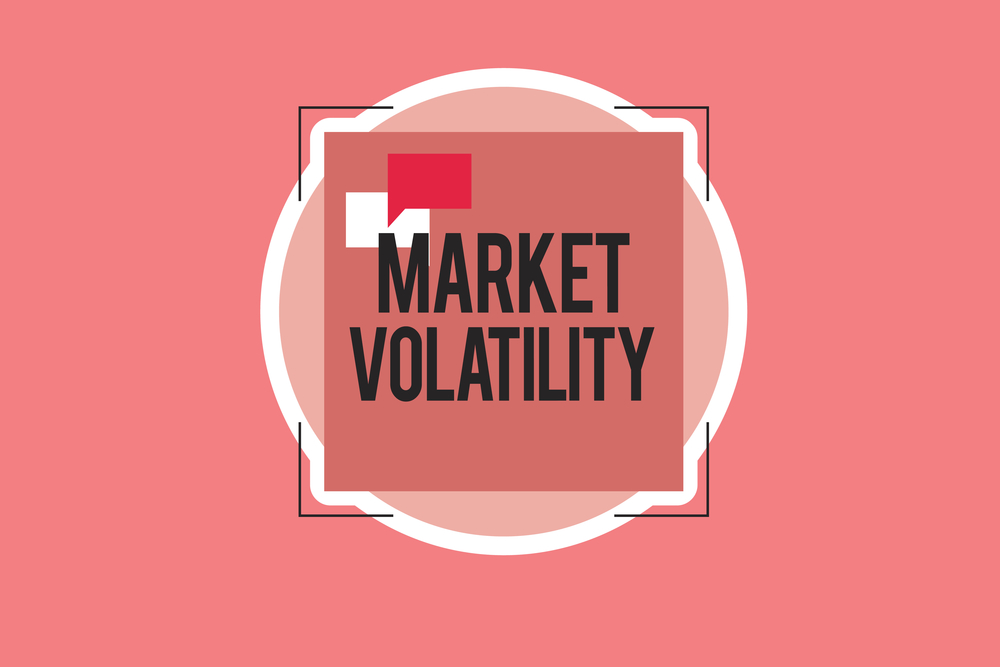What Is Volatility Trading?
Volatility trading is trading on the volatility rather than on the actual price of a stock or option. Technically, your trade is on the expected future of the volatility, as volatility itself changes over time.
Why Pay Attention to Volatility Trading?
Ask yourself this: Would you ever trade Amazon with a $1 stop? I hope not, because on average, shares of Amazon move in a $76 daily range. A $1 stop is just too darn tight for a stock like that — heck, the spreads alone could be a few bucks … and a trade like that is almost certain to lose every time. You see, volatility matters when you’re trading stocks or options. That said, most traders are aware of how silly it sounds … but when it comes to trading the derivatives market, traders make the silliest mistakes.
That stops today.
If you are one of those traders who has tried options and has failed, listen up. Buying and selling options are not the same as trading stock. There is a time and volatility element involved that you need to be aware of. If you ever bought an option … were right on your directional view … but lost money on the trade … it’s probably because you got the timing or volatility wrong.
Basics of Annualized Volatility
Options trading platforms typically quote volatility in annualized terms. This is super confusing because most traders look at this value in daily terms. For example, if Microsoft moves on average 2% a day … we know what that means. However, if you tell a stock trader that Microsoft is trading at annualized volatility of 32% … they will probably not know what the heck you’re talking about.
(Note: It’s okay if this doesn’t make sense right here because we go over how to use tools and tips like this in Weekly Money Multiplier.)
For example, some traders will look at this options chain in Microsoft and draw a blank.
But let’s say you wanted to buy the $95 strike price calls, expiring in about a month from now. Those are trading with an implied volatility of 47.05%. Knowing just the annualized volatility would not help you, however, because the options expire far sooner than a year from when you acquire them. So you would really only care about the volatility in the short-term right?
Converting Annualized to Daily Implied Volatility
Fortunately, you can convert annual to daily volatility: You would divide the annualized figure by the square root of 252 (since there are 252 trading days in a year). Don’t worry, you can estimate the daily figure and just divide by 16 (you can use 15.874 if you want to be more specific).
For example, the daily implied volatility is 2.96% (47.05% / 15.874).
But what if you wanted to figure out how much Microsoft would move in a week?
Well, there are about 50 trading weeks in the year, so you would just divide the implied volatility by the square root of 50 ( or 7.071).
Therefore, at this annualized figure Microsoft is expected to move around 6.65% (47.05% / 7.071) on a weekly basis.
Here’s a quick table for your reference:
| Annual Vol to Daily Vol | Divide by √252 ( Use 15.8745 or 16) |
| Annual Vol to Weekly Vol | Divide by √50 ( Use 7.071 or 7) |
| Annual Vol to Monthly Vol | Divide by √12 ( Use 3.464 or 3.5) |
Next time you’re looking at an options trade, take a look at the implied volatility and try to get a feel of what the market is anticipating. Try finding an annualized volatility and converting to daily volatility and seeing how it changes your options trading. You could be buying options too rich. That said, you’ll be able to make a more informed decision after converting annual to daily volatility to make better sense of volatility trading.
To YOUR Success!
Jeff Bishop
Weekly Money Multiplier
#-#-#
Jeff Bishop is lead trader at WeeklyMoneyMultiplier.com and widely recognized as the Mensa Trader. He runs short-term trading strategies, using stocks, options and leveraged ETFs.







1 Comments
Is there any relation between daily volatility and standard deviation?